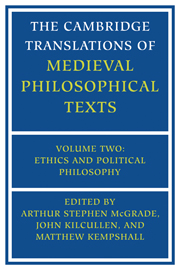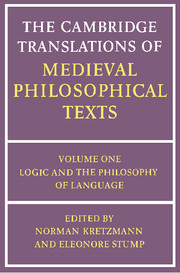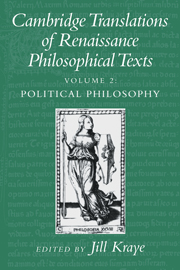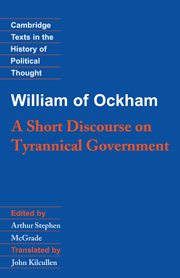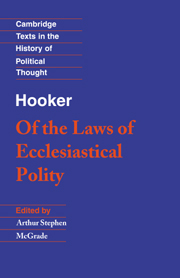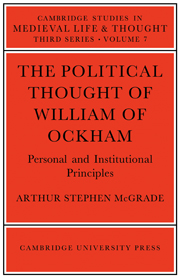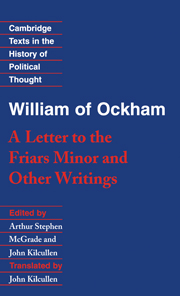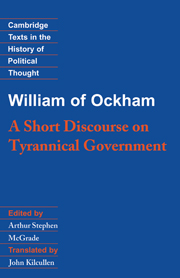The Cambridge Translations of Medieval Philosophical Texts
The long-awaited second volume of The Cambridge Translations of Medieval Philosophical Texts offers first-time English translations of major texts in ethics and political thought from one of the most fruitful periods of speculation and analysis in the history of Western thought. The seventeen texts in this anthology offer late medieval treatments of fundamental issues in human conduct that are both conceptually subtle and of direct practical import. This is an important resource for scholars and students of medieval philosophy, history, political science, theology and literature.
- Only available selection of major medieval ethical and political thought translated into English
- Medieval Studies is of interdisciplinary interest in various fields such as philosophy, history of ideas, theology, literature and political science
- Primary sources for Medieval Studies
Product details
October 2000Paperback
9780521280822
680 pages
229 × 38 × 152 mm
0.98kg
Available
Table of Contents
- General Introduction
- 1. Questions on Book X of the ethics Albert the Great
- 2. Conscience and synderesis Bonaventure
- 3. On the Rule of Princes Giles of Rome
- 4. Commentary and questions on Book III of Aristotle's politics Peter of Auvergne
- 5. Is it rational for someone without hope of a future life to choose to die for the Commonwealth? Henry of Ghent
- 6. Does a human being following the dictates of natural reason have to judge that he ought to love God more than himself? Godfrey of Fontaines
- 7. Does a human being have a greater natural love for God than for himself, or vice versa? James of Viterbo
- 8. Is the science of theology a speculative science? Godfrey of Fontaines
- 9. Is a subject bound to observe a statute even when it is not evident that it promotes the common unity? Henry of Ghent
- 10. Are subjects bound to pay a tax when the need for it is not evident? Godfrey of Fontaines
- 11. Is it better to be ruled by the best man than by the best laws? James of Viterbo
- 12. May a Christian king use unbelievers for the just defense of his kingdom? John of Naples
- 13. Using and enjoying William of Ockham
- 14. Summa on ecclesiastical power (Selections) Augustine of Ancona
- 15. Is an errant individual bound to recant at the rebuke of a superior? William of Ockham
- 16. Questions on Book X of the ethics Jean Buridan
- 17. On civil lordship John Wyclif.

